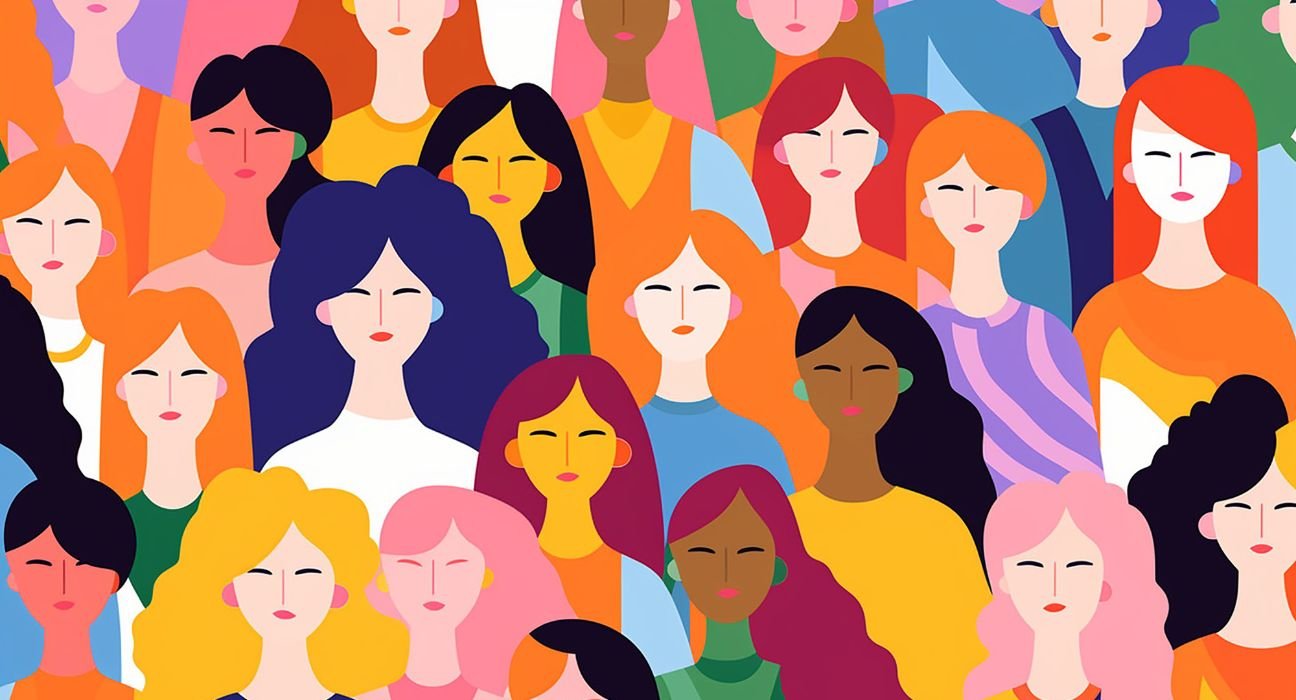Psychology, a field that has been dedicated to the understanding of human mind and behaviour, has been Eurocentric and male dominated. Contributions of male psychologists such as Freud, Jung, Frankl, Maslow are frequently recognized and quoted whereas the significant contributions of female psychologists receive less attention revealing historical gender biases in academia. India is no stranger to this global trend. In the past women in India had limited opportunities in higher education. In a report by the University Education Commission of 1948-49, set up under the chairmanship of Dr. S. Radhakrishnan in November 1948 it was mentioned, “the greatest profession for a woman is and probably will continue to be, that of home maker.” This is indicative of the fact that in the past centuries the role of women had been confined to childcare and domestic responsibilities.
Read More: 15 Women psychologists Who made their contribution to the field
Traditionally, women in India have been treated as the holders of the virtue of society and are expected to serve their duties as wives, daughters, and mothers (Parikh & Garg, 1989). This is one of the reasons why the women’s participation in higher education had been negligible. At the time of the independence in August 1947 the enrollment of women in higher education was less than 10%. In 1958 a National Committee for the education of women was set up by the Government of India recommending increased participation of women in higher education. Over the years, due to various measures being taken by the government, such as reduced fee and reservation schemes in some educational institutions, the participation of women in education has increased.
Read More: Mental Health and Women

The first doctoral degree including ‘Psychology’ in its title was awarded to G Stanley Hall in 1878. However, it was years later in 1894 that Margaret Floy Washburn became the first woman to earn a doctoral degree in Psychology. Even though the first name of a woman psychologist ‘Anna Freud’ gained popularity, women such as Mary Whiton Calkins, Mary Ainsworth, and Karen Horney, get recognized for their contributions to the field of Psychology.
However, Inez Beverly Prosser and Mamie Phipps Clark both of African descent are only mentioned in passing. Despite facing considerable prejudice based on their sex and race, their research went on to play a major role in the Brown vs. Board of Education of Topeka, 347 U.S. 483 (1954) court case. a.
Read More: The Psychology of Prejudice and Stereotyping
In India, no record is available to identify the first woman to earn a Ph.D. degree in Psychology. However, Padma Agrawal is among the early women scholars to earn her Ph.D. in 1950 from Banaras Hindu University for her thesis titled “A Psychological Study in Symbolism”. S. Anandalakshmy went on to earn her Ph.D. degree from University of Wisconsin, Madrid. She later returned to Lady Irwin College of the University of Delhi and established a master’s degree course in ‘Child Development’.
Mahzarin R. Banaji is the first woman of Indian origin to earn her Ph.D. in Psychology in the United States from The Ohio State University in 1986. Through her research work she has contributed to the science of prejudice by highlighting implicit biases as a prominent part of our psyche. Notable research was carried out by Namita Pande on the health outcomes of the indigenous concept of ‘anasakti’ or non-attachment which was found to be associated with lower levels of distress and symptoms of ill-health (Pande & Naidu, 1992).

Another notable work is that of social psychologist Lilawati Krishnan who completed her Ph.D. from McMaster University, Ontario, Canada on the reactions of recipients in helping situations. Her study consisted of 6 experiments wherein help recipients were placed in situations where they could return the favour. Her study underscored the role of social norms such as reciprocity and perceptions of fairness on the behaviour of people in helping situations (Krishnan, 1978). Another prominent woman psychologist from India is S. L. Vaya whose contribution to the field of Forensic Psychology in India is unmatched. However, with the exception of S. L. Vaya, the contributions of women psychologists in India have not garnered much attention and they have not been able to attain the popularity of eminent Indian Psychologists such as N. N. Sen Gupta, Brajendra Nath Seal, Durganand Sinha etc.
Several researchers and academicians have raised concerns about the issue of indigenisation. One of the early researchers to talk about indigenous psychologies and indigenisation was Kurt Danziger (1985). He defined the process as “a self-conscious attempt to develop variants of modern professional psychology that are more attuned to conditions in developing nations than the psychology taught at Western academic institutions” (Danziger, 2006). D. Sinha (1993) claims that indigenisation can occur in two forms: endogenous that involves complete focus on native theories and exogenous that involves adaptation of foreign and mainstream theories and materials to fit the native culture.
For instance, Girindrashekhar Bose developed his ideas about Psychoanalysis independent of Freud by 1914 in India. In the year 1921 he published a book titled “Concept of Repression”. He began correspondence with Freud in 1921 which lasted for almost 16 years. It is clear through Freud’s correspondence that he commended Bose’s efforts and was also impressed by the spread of Psychoanalysis in a foreign land but was apprehensive of the cultural specifics of Bose’s ideas. When voices of indigenous people, particularly women and indigenous women are missing it leads to cultural irrelevance of psychological models, increased chances of bias and misdiagnosis and perpetuation of inequality.

Several women too have been working towards the indigenization of Psychology. In India, internationally renowned psychologist Aruna Broota developed Broota Relaxation Techniques that combines Indian techniques of yoga and meditation with western psychotherapy. The familiarity of the Indian population with yoga and meditations makes these techniques effective in dealing with a wide range of problems including stress management, panic disorder, and depression (Clay, 2002).
Shin Shin Tang through her research work has explored the role of trauma, gender, and culture. Through her book “Asian American Psychology and Psychotherapy” she has centered the voices of the Asian diaspora in the context of trauma and underscored the need for a culturally sensitive psychotherapy. In China, Fanny Cheung and her colleagues developed a personality inventory that incorporates both universal and culturally salient personality dimensions comprising the personality structure of Chinese people (Cheung et. al., 2001).
Anishinaabe psychologist Amy Bombay has also been actively working in the field of indigenous well-being. She emphasizes that indigenous healing ceremonies play an important role in protecting the resilience of the indigenous communities (Aird & Berlis LLP, 2023). However, indigenisation of Psychology has taken place only sporadically. Moreover, the contributions of women are frequently neglected. Exclusion of voices of indigenous women undermines the efforts to empower these groups.
Read More: Mental Health and Satisfaction in Tribal Communities: A Contradictory Story of Resilience
This skewed perspective has resulted in the systemic neglect of the contributions made by women, particularly by women of colour and other indigenous women dispersed globally. Despite conducting groundbreaking research, their work has frequently been relegated to the shadows and has been marginalized. Narratives related to psychological research will never be complete without the inclusion and recognition of scholarship from women, persons of color, and those from indigenous backgrounds. It is crucial to include these diverse voices to ensure the development of culturally appropriate and effective interventions reflect a more comprehensive understanding of human behaviour and foster social justice and equality within the discipline.
The timely launch of two volumes of “Early Psychological Contributions of Women of Color” (Grahe, Ceynar & Mason, 2023; Mason, Grahe, & Ceynar, 2024) is a significant step towards rectifying this historical bias and injustice. By focusing on the works of women of colour who earned their degrees in the United States, these books shed light on the wealth of knowledge that has been ignored for far too long. Each volume highlights the dissertations of 20 women of colour who made early contributions to the field of Psychology. The books cover a range of topics including but not limited to cognitive, social, physiological, and clinical psychology.
The books present biographical sketches of each of these women, summarize their dissertations, and discuss the reproducibility and replicability of their work. Additionally, the volumes discuss the dissertations from the perspectives of modern theoretical frameworks and offer insight for using the research as instructional material in classes. Thus, the books offer invaluable insights for both students and instructors.
For instance, one of the chapters provides an in-depth exploration of Leora Marlene Echohawk’s dissertation titled “Locus of Control among American Indian Youth.” Her work highlighted the lack of culturally appropriate tools to measure leadership and behavioural problems among Native American youth posing a threat of mislabelling them. The chapter further critiques the reproducibility of her research noting the limitations due to lack of availability of the original data. However, it emphasizes on its potential for future research to build upon her work.
In conclusion, to ensure that the discipline of Psychology reflects global experience and to address historical bias it is important to amplify diverse voices. The publication of works such as “Early Psychological Contributions of Women of Color” (Volumes 1 and 2) is a significant step towards rectifying past injustices.
References +
- Agrawal, P. (1950). A psychological study in symbolism (Unpublished doctoral dissertation). Department of Hindi, Banaras Hindu University. http://hdl.handle.net/10603/309195
- Aird & Berlis LLP. (2023). Intergenerational Trauma and the Protective Effects of Culture in Relation to Well-Being Among First Nations People [Video]. https://vimeo.com/869214370
- Akhtar, S. (2005). Freud Along the Ganges: Psychoanalytic Reflections on the People and Culture of India. Other Press.
- Bhushan, B. (2017). Eminent Indian Psychologists: 100 years of Psychology in India. SAGE Publications
- Cheung, F. M., Leung, K., Zhang, J. X., Sun, H. F., Gan, Y. Q., Song, W. Z., & Xie, D. (2001). Indigenous Chinese personality constructs: Is the Five Factor Model complete? Journal of CrossCultural Psychology, 32, 407–433.
- Clay, R. A. (2002). Psychology Around The World–An indigenized psychology. Monitor on Psychology, 33(5). https://www.apa.org/monitor/may02/india
- Danziger, K. (1985). The origins of the psychological experiment as a social institution. American Psychologist, 40, 133–140.
- Deb, M., Mallick, A. K. & Bose, U. (2017). Heritage Papers of early Leading Indian Psychologists Volume 1 . The Asiatic Society.
- Grahe, J. E., Ceynar, M. L. & Mason R.S. (2023). Early Psychological Research Contributions from Women of Color, Vol. 1. Routledge: USA
- Krishnan, L. (1978). The recipient’s reactions in helping situations (Doctoral dissertation, McMaster University). MacSphere. http://hdl.handle.net/11375/12196
- Mason, R. S., Grahe, J. E. & Ceynar, M. L. (2024). Early Psychological Research Contributions from Women of Color, Vol. 2. Routledge: USA
- Maryville University. (n.d.). Women in psychology: A look at the contributions of women in the field. Retrieved August 4, 2024, from https://online.maryville.edu/online-bachelors-degrees/psychology/resources/women-in-psychology/
- Pande, N., & Naidu, R. K. (1992). Anāsakti and Health: A Study of Non-attachment. Psychology and Developing Societies, 4(1), 89-104. https://doi.org/10.1177/097133369200400106
- Parikh, I. J. & Garg, P. K. (1989). Indian Women: An inner dialogue. SAGE Publications: Michigan.
- Sinha, D. (1993). Indigenization of psychology in India and its relevance. In U. Kim & J. W. Berry (Eds.), Indigenous psychologies: Research and experience in cultural context (pp. 30–43). Sage Publications, Inc.
- Tang, S. S. (2023). Asian American Psychology and Psychotherapy: Intergenerational Trauma, Betrayal, and Liberation. Rowman & Littlefield Publishers.













Leave feedback about this